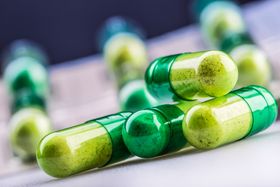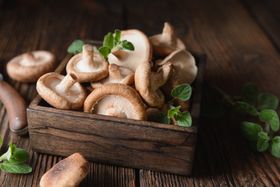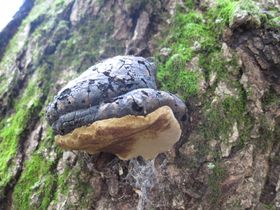Eczema vs Psoriasis: 3 Fundamental Differences (+ Treatment Options)
Updated April 14, 2023.

Eczema and psoriasis are both skin rashes/conditions that are often mistaken for one another. However, there are some fundamental differences between the two such as their cause, appearance, treatment, and more. To discover what these differences are and how you should treat your condition, read on.
What Is Eczema?
Eczema is actually a collection of skin rashes that can affect any area of the body and usually start in babyhood. There are 7 types that are usually triggered by irritants or allergens, but all of them produce itchy, inflamed skin that can also be dry and crusted.
Types
- Atopic dermatitis Most common in young children
- Contact dermatitis Triggered by things in the environment
- Discoid eczema Affects small patches of skin, making them itchy and scaly
- Dishydrotic Dries skin and causes burning rashes and blisters
- Nummular Causes small rounded lesions all over the body, especially the arms and legs
- Seborrheic dermatitis Inflammatory and affects the scalp
What Is Psoriasis?
Psoriasis is an autoimmune disease that impacts the skin and can also trigger psoriatic arthritis that affects the joints and connective tissue. Like eczema, there are several variations of psoriasis.
Types
- Plaque psoriasis The most common type that causes raised patches of dry itchy skin (plaques) covered with scales. The most common sites are the knees, elbows, lower back, and scalp.
- Nail psoriasis Affects the nails and nail beds, causing pitting, abnormal growth, and sometimes loss of the nail.
- Guttate psoriasis Mostly affects young adults and children and causes small, drop-shaped scaly spots.
- Inverse psoriasis Mainly affects skin folds of the groin, buttocks, and breasts and causes smooth patches of inflamed skin that worsen with friction and sweating. Fungal infections can trigger or exacerbate episodes.
- Pustular psoriasis A rare type that causes pus-filled blisters that are common on palms and soles.
- Erythrodermic psoriasis The rarest type of psoriasis, covering the whole body with a peeling rash that can itch or burn intensely.
» Psoriasis acting up? Learn how to avoid triggering psoriasis and nurture your skin
3 Fundamental Differences Between Eczema and Psoriasis
1. Cause
Eczema flare-ups tend to be an allergic reaction to organisms or substances, though the conditions can also be inherited. It often starts in babyhood and worsens with stress and age if not treated.
Psoriasis, on the other hand, is an autoimmune disease where the body attacks its own cells—in this case, skin cells. It is sometimes linked to other health conditions, particularly autoimmune ones. Psoriasis is often inherited and can be worsened by stress or injuries to the skin, such as sunburn.
2. Appearance
Eczema is often red, inflamed, and scaly.
Psoriasis is often red, raised, scaly, and thicker; however, there is a form of psoriasis (inverse psoriasis) that is smooth instead of raised.
It's important to note that skin colour will influence the appearance of both conditions.
3. Feeling
Eczema tends to cause intense itching, though it can also have a burning sensation.
Psoriasis is also very itchy but frequently includes intense burning, stinging, and tight skin.
Both conditions are highly uncomfortable and can trigger secondary infections due breaking of the skin as a result of itching. With psoriasis, plaques located in skin folds are susceptible to fungal infections as well.
Treating Eczema vs Psoriasis at Home
Eczema
Treatment for eczema depends a lot upon the severity and can include:
- Not using soap that dries out the skin
- Avoiding fragranced lotions and creams
- Wearing breathable fabrics
- Emollient (moisturizing) creams for daily use
- Topical corticosteroids
- Antihistamines for itching and flare-ups
For severe eczema, sometimes topical JAK inhibitors are prescribed. These are strong medications that can only be prescribed by a specialist.
» Looking for natural treatments? Read Treating Inflammatory Psoriasis With CBD and Functional Mushrooms
Psoriasis
Psoriasis has both systemic and topical treatments, and most people opt for a combination of both. They can include:
- Topical corticosteroids
- Emollient creams
- Medicated shampoo for scalp treatment
- Immunosuppressant drugs
Opt for Natural Skin Remedies
Knowing the difference between eczema and psoriasis is essential if it is to be treated correctly. Both conditions are chronic, but psoriasis is associated with other illnesses that can be far more serious. In order to gain a correct diagnosis, a medical professional should be consulted.
» Ready to rejuvenate your skin? Browse our range of skincare products and anti-aging remedies







